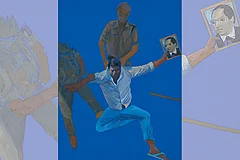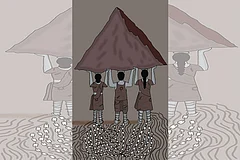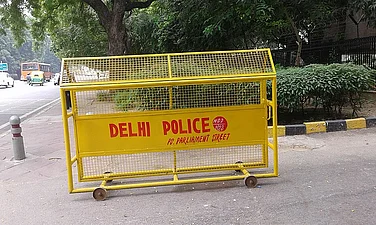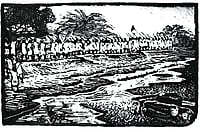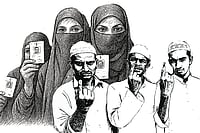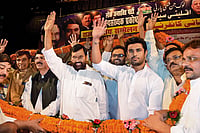Modern nation states have often responded emotionally, more than politically, to the notion of freedom. We may discern at least three perspectives in such a response. For John Stuart Mill, writing in the much-acclaimed classic On Liberty, freedom meant the idea of the free and sovereign individual, and that freedom would be absolute, except in one case where such freedom did harm to another. In order to realise full freedom, Mill sought restrictions on the interference to individuals in the form of physical or legal sanctions or any kind of social pressures, even the ‘moral coercion of public opinion’, except in the case of prevention of harm, hurt, injury and evil to others. The political philosopher Isaiah Berlin, in Four Essays on Liberty, categorises freedom as negative and positive. Negative freedom, for him, is the absence of intentionally constructed barriers to our actions. For instance, the banning of certain titles in a library violates the negative freedom of any student to achieve a specific goal. Positive freedom, so to say, exists when one is able to take control over a situation to equip oneself to make better choices. Educated people, in this sense, are freer than uneducated ones. And, for Karl Marx and later Marxists, freedom qua self-determination meant removal of obstacles for human agency and emancipation, a sort of association worthy of human nature. The conditions of wage-labour could be seen as one of the obstacles.
These perspectives on freedom, notwithstanding their nuanced differences, converge on the idea that free people are those who believe that they are effective and self-determining, and they have the necessary skills and sufficient information to make reasoned choices in their lives. A free society, therefore, inheres in free individuals, who are autonomous and self-directing, who will not tolerate tyranny and who will insist on sustaining the institutions that are necessary to their freedom.
Equipped with these thoughts on freedom, India made her ‘tryst with destiny’ for freedom of thoughts and freed herself from the shackles of British imperialism. The Indian freedom struggle ushered in two major revolutions, the national and the social, to actualise swaraj as a self-determining political community. Independent India had promised the transition of ‘freedom from’ to ‘freedom to’. Freedom from dominion status to poorna swaraj with a responsible government. India looked forward to the protection of civil and political liberties such as the right to speech and expression, the right to form associations, the right to organise and present one’s views freely and so on. Freedom to have ‘inner freedom’, ‘self-dependence’ and ‘self-reliance’ also meant freedom from banality and evils such as slavery, drudgery, hatred, violence and oppression. Liberation and emancipation, therefore, would necessarily mean both, ‘freedom from’ vices and ‘freedom to’ virtues—one of the core virtues being freedom to be equal.
Independent India gave unto herself a constitution symbolising a collective identity, a sense of agency that gave expression to a distinctive national emotion. The constitution makers, led by B R Ambedkar, assiduously worked to forge a constitutional unity amidst internal ethnic, religious and linguistic diversity. It was indeed a difficult task to provide an overarching framework to a politico-legal document for fundamental freedoms—equality, justice and fraternity—to a society that was inherently multi-ethnic, pluricultural and multinational. Federalism, universal adult franchise, devolution, fundamental rights, power sharing and other governance structures were envisaged, basically to seek legitimate forms of political and collective behaviour of both, the governed and the governing. The Indian constitution, despite having a complex and distinctive provenance, is truly the product of specificities in terms of struggles, opportunities and social contexts.
This 15th August, India celebrates her 78th Independence Day and reassures her constitutional political values of republicanism and sovereignty. For the people of India, independence would have no meaning if they are not able to exercise their right to freedoms freely, without encroachment by society or by the State. Indian citizens enjoy some basic fundamental rights to foster a kind of egalitarian society in which citizens are equally free from any kind of coercion by the State or by society privately, and also equally free to have ‘right to life and personal liberty’, among other freedoms.
Right to Life and Liberty
The fundamental rights sub-committee of the constituent assembly made fundamental rights justiciable and provided legal methods in the forms of prerogative writs or directions in the form of writs to avail those rights, and, right to constitutional remedies to secure those rights. These writs are seen as sinews of rights; have become quite popular; and are believed to be ‘the cornerstone of freedom and liberty’. However, it is the right to protection of life and personal liberty (Article 21) of the constitution that ensures every person not be deprived of his life or personal liberty, except according to the procedure established by the law. The celebrations of Independence Day derive its core meanings from the right to freedoms and the right to life and personal liberty.
Democracy Discourse
The idea of India is shaped by the essential democratic discourse linked with the citizen’s ideational capacities of constructing and producing knowledge in the spheres of freedom, equality, rights, diversity and secularism. The desire to have a responsible and representative government emanates from the conviction that people in independent India must have a voice and an opportunity to participate in shaping their own political future. For the freedom fighters and the shapers of the constitution, to realise political freedoms, the idea of a non-democratic form of government seemed simply unpalatable and unacceptable.
The democratic discourse in India, inescapably, involves the centrality of community—religious, linguistic, caste, tribe and gender—in relation to the State and the citizen. It is in the communities inter se that the varied structures of inequalities persist and groups within them are discriminated against and marginalised. These groups mobilise themselves to resist the underlying structures of oppression and seek what may be called ‘liberation of the oppressed’. The democratic discourse shapes and gets shaped by the political process of the liberal democratic institutions that India opted for post-independence. These institutions have a tendency to move forward or backward, depending on the nature of political processes. Backsliding of democratic institutions erodes fundamental freedoms and its progression leads to the deepening of democracy with more freedoms to more and more people.
India in the recent past, along with some other nations, has shown a disheartening phenomenon that goes by names such as authoritarian-populism, illiberalism, religious right-wing nationalism, neo-fascism and exclusionary regime. The contemporary democratic discourse in India finds its roots in authoritarian-populism, which promises to give solutions to the contradiction of (neo) liberalised capital, challenges the westernised elites and established landed class, and seduces to ‘clean’, technocratic alternative to previous corrupt regimes. The discourse is also shaped by the Hindu nationalism of the Hindutva project—a project driven by upper caste hegemony over the discourse of assertive authentic ‘Indian (Hindu)-ness’. The language of nationalism and of Hindu unity tries upfront to placate and co-opt oppressed castes and tribes against the so-called anti-national ‘others’—Muslims and Christians, critics and dissenters.
The celebration of Independence Day is also a time to think over our fundamental freedoms and democratic discourse and to redeem our pledge to constitute India into a sovereign, secular, socialist, democratic and republic nation.
(Views expressed are personal)
MORE FROM THIS ISSUE
Tanvir Aeijaz, Teaches Politics And Public Policy At The University Of Delhi And Is Honorary Vice-Chairman At The Centre For Multilevel Federalism (CMF), New Delhi
(This appeared in the print as 'Freedom From And Freedom To')










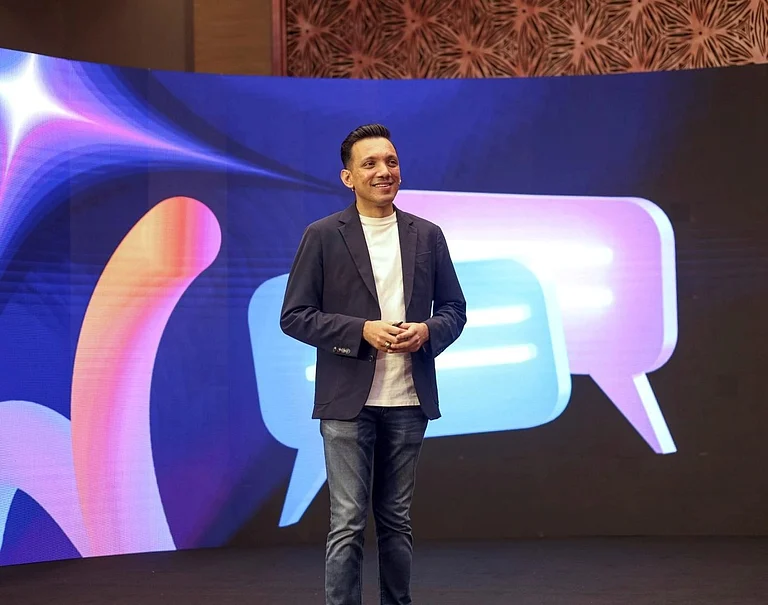
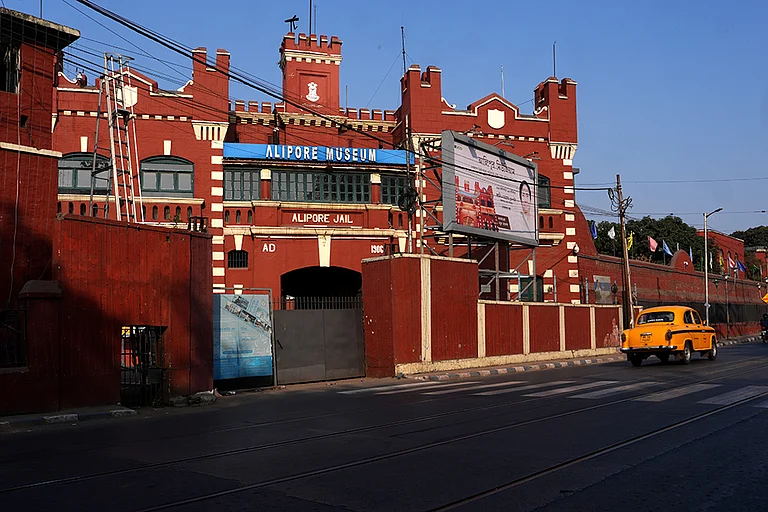

.jpg?auto=format%2Ccompress&fit=max&format=webp&w=768&dpr=1.0)


